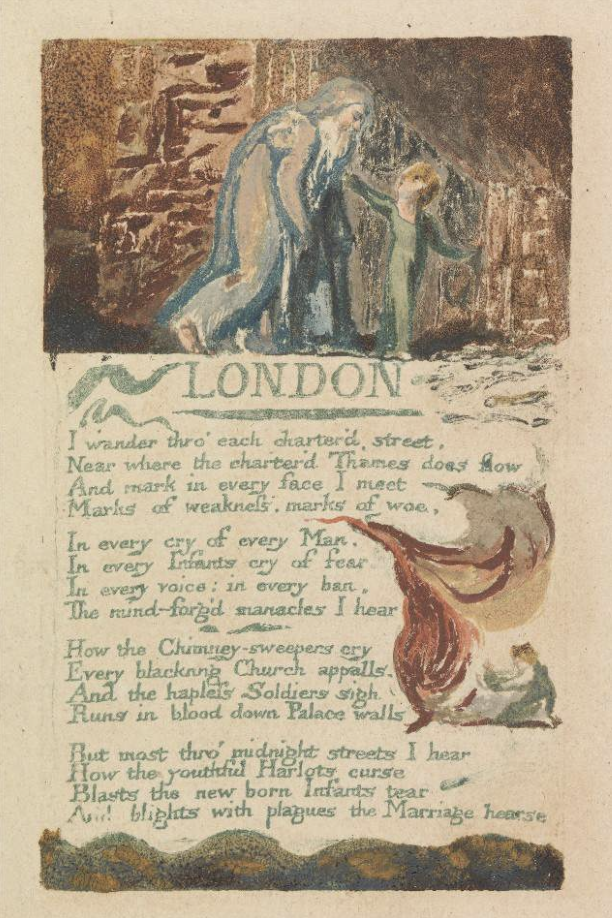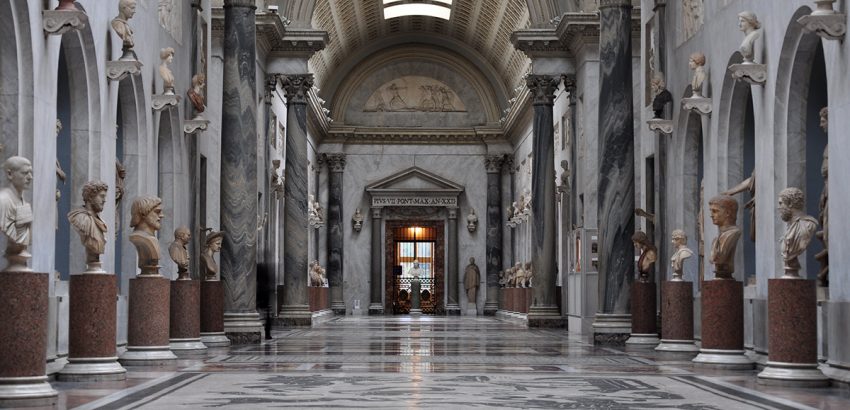By Dariga Atayeva, Year 12
Within his work “Songs of Experience” published in 1794, but written around 1789-1790, William Blake seems to contradict his radical point of view which he described in the “Songs of Innocence”, published previously in 1789. Both works contrast as “Songs of Innocence” depicts the soul when it is at one with itself-thus being in joy and harmony which relates to childlike innocence-whereas “Songs of Experience” is more mature and transitions from this innocence as the soul is “corrupted” and disillusioned where the latter is thus subject to conflicting ideas between good and evil.
A poet during the Romantic period who was born during a time of great political, economical and social change such as the French Revolution and the Industrial Revolution, he philosophises on knowledge claims to be drawn from sensation. Blake placed a lot of value on the power of imaginations which he regarded through a religious lens as access to “Eternity” for which human beings were originally created. His ideas made several critics throughout time consider him “mad” and other ideas of the sort. However, I would argue that his ideas are what brought him to be recognized as the great poet he is known as today.
His poem “London” in his work of “Songs of Experience” is one of his most political poems. Within it, the narrator travels through the City of London whilst perceiving the misery of the environment around him. This misery is not only conveyed through visual imagery but also through an extensive amount of auditory imagery. For instance, we can see this in “In every cry of every Man” “In every Infant cry of fear” “How the Chimney-sweepers Cry” and many more examples can be included. There is a great amount of repetition throughout the poem, which achieves its aim of giving the tone for the oppressive atmosphere.
What I think is most valuable in this poem is what we can learn from it. Why was London so full of misery on every corner of every street in 1794? Why were soldiers running “in blood down Palace walls”? It is certainly difficult to answer these questions without giving some thought to the historical context. The poem is in part a response to the Industrial Revolution as in this period great changes were happening in that sphere. Blake believed that this change took away their sight of what it meant to be human. Just like today, London is one of many great cities and is very urbanised-an aspect which Blake actually criticised for creating a flawed and oppressive environment. The Industrial Revolution was a turning point in Europe’s history, and what ensued is the Victorian era in which a great amount of literature and sources provide us with a perspective of the great poverty in which people lived in urban areas. This poem also contains the theme of childhood corruption, fitting in well within his work of the “Songs of Experience” in contrast to the “Songs of Innocence”. Blake describes how children are constantly crying and the allusion of the “Chimney Sweepers” gives us the idea that the children were forced to work and sell their childhood to survive.
A lot more analysis can be done of this poem, and what I have included is only a general overview. Blake’s works are certainly worth it if you’d like a starting point in 18th century poetry!



